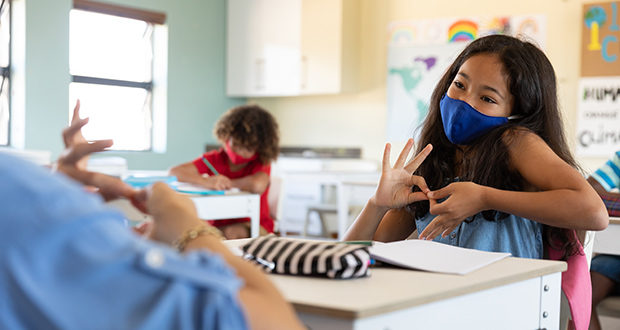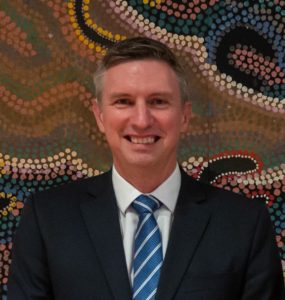Isolation – it’s a word we’ve all become too familiar with since 2020. For many of us, it was a feeling that we had never experienced before, but there is a vital part of our community that experiences it on a daily basis – Australians with hearing loss like me.
In particular, studies have found that children with hearing loss are four times more likely to develop mental health challenges, be exposed to bullying, and are likely to experience social exclusion from their peers during their formative years.
For a hearing person, it can be difficult to understand how isolating life with hearing loss can be, even hearing loss classified as mild. Day to day living in pandemic times has meant we have all experienced isolation on some level - many of us were separated from our loved ones and our workplaces, with our traditional means of communication dramatically altered.
While most Australians have welcomed the easing of restrictions and return to some semblance of normalcy, the transition has continued the challenges for kids with hearing loss.
The return to face-to-face schooling after almost two years has reduced the challenges created by masks and poor online sound quality, however the noise and confusion of school can create fresh isolation, with exhaustion and disengagement as students of all ages struggle to keep up.
Children and teenagers with hearing loss need the support of those closest to them, including their teachers and friends at school. After nearly two years of home learning, these teachers and students may need help remembering that their friends with hearing loss need some extra support.
With students finally returning to school post-COVID restrictions, the time for understanding is needed more than ever.
The Shepherd Centre recently unveiled a first-of-its-kind virtual reality experience to allow others to experience life at school with hearing loss.
The purpose behind the experience was designed to demonstrate what is it really like for children with hearing loss when they are at school. Developed as part of our teenager mentoring program, Hear For You, the experience focuses on the most common everyday life with hearing loss issues in a busy school, such as social challenges, feeling isolated and missing the key words.
The VR headset takes the person into the world of a deaf teenager interacting in a social situation at school. In first-person and with the audio of a hearing aid, it mirrors the challenges and frustration experienced every day by teenagers with hearing loss.
For me, like any deaf person who grew up in Australia, High school is a tough time, a time when no one wants to be labeled as different. Imagine the impact of fellow students understanding the challenges faced by those with hearing loss, deciding to challenge the status quo, speaking up and starting a change.
When parliamentarians and hearing people first experienced the VR, it was natural to watch their instinct to turn the volume up, a simple solution for so many people. Each one of them quickly became frustrated as they could not follow the conversation and felt excluded from what the students were saying.
The short film is a simple conversation about what each student experienced over the holidays. The anticipation to share the fun times can be seen on the students' faces yet can’t be clearly heard.
Watching the experience doesn’t just stop with the students – we want this short video shown to as many Australians as possible.
Many of our Shepherd Centre families have shared stories of how a teacher, a support worker, or another parent has stopped and asked how a change to the day-to-day teaching can be made to help one of their students with hearing loss.
Once we have the full support system of peers and the school communities, our children with hearing loss will feel less isolated, we will see dramatic improvements in mental health outcomes, and give them a better chance of succeeding in the future.
We will continue to campaign to have this program in all schools across the country. These children are the voices of our future but if they can’t participate in the conversation, they will never be heard.
David Brady is director of community engagement at The Shepherd Centre.
Do you have an idea for a story?
Email [email protected]
 Education Review The latest in education news
Education Review The latest in education news

